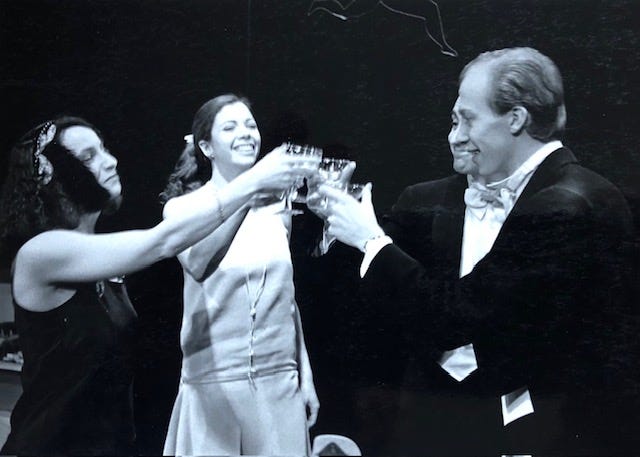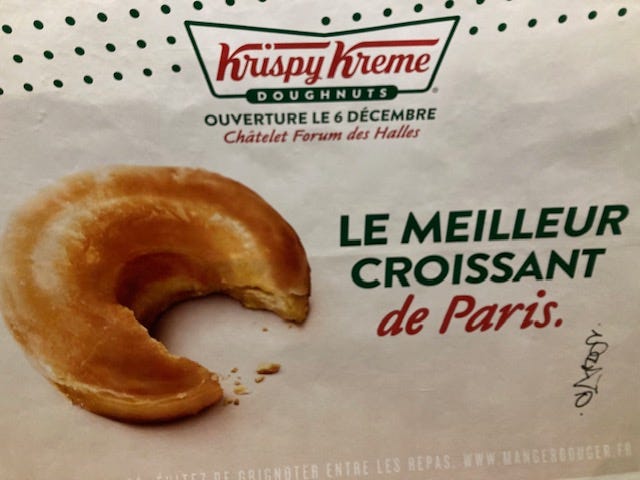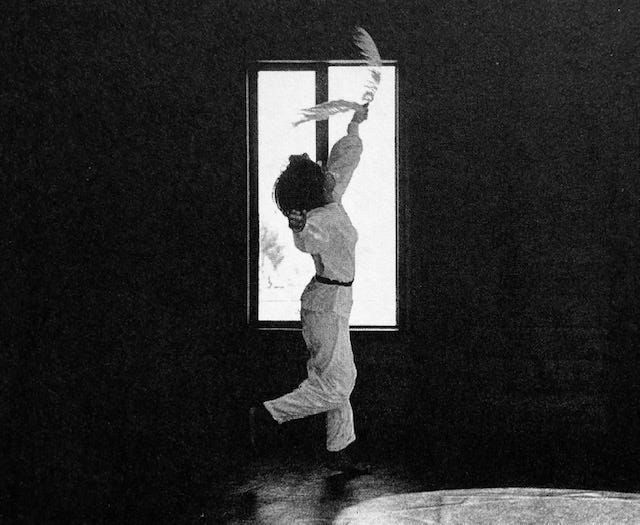Under Siege
Jim's Musings from Paris February 2024
Paris is under siege! French farmers surround the city today and block the main thoroughfares leading to the ancient portes or gates. Using tractors, hay bales, and whatever else they can get their hands on, the disgruntled farmers intend to create chaos in Paris’ transportation system. They want to draw attention to their urgent requests for less regulation and bureaucracy and the need for higher profits from the sale of their produce and livestock. It’s a tricky situation.
France’s new, young, gay, prime minister, Gabriel Attal, who was just appointed a few weeks ago, has tried to placate the farmers with some concessions on diesel fuel and machinery subsidies. He has also strongly promised to fight for a better quality of life (freedom from some of the cumbersome and time-consuming paperwork) and a living wage (25% of French farmers live below the poverty line). The war in Ukraine hasn’t helped the farmers’ situation, sparking a global food crisis with increased costs for energy and less profit at the marketplace. Unfortunately, Mr. Attal’s youthful charm, while appreciated, did not do the trick for everyone. The farmers feel there are issues that still need to be addressed and so the tractors have continued to gather outside the city this morning.
No one wants more violence. Especially against the food producers. From my point of view, France does a pretty good job of supporting its national agriculture. At least here in the city. In the rural areas, consumers are more dependent on the super supermarkets, while here we can find affordable, small markets promoting local, organic, and seasonal produce. We try our best to limit our buying of imported items. Oranges, lemons, mandarins, and avocados are the only fresh things I buy right now that are not grown in France, and most of our produce comes from within 200 kilometers of Paris. The citrus I buy usually originates in Spain. The avocados, however, are more problematic. They can come from as far away as Colombia or Peru, Israel or Morocco. Needless to say, we’re not eating as many avocados as we used to.
And I’m trying to include more fish in our diet. The Paris fish markets, though, still intimidate me. The stalls overflow with glistening, eyeball staring, freshly caught varieties of sea life from Brittany and Normandy, piles of bizarre looking crustaceans, all stacked on a bed of ice, amidst a smell that (for me) comes directly from the pages of Melville or Jack London. It certainly is not a smell that I grew up actually smelling. I also don’t yet know how to ask for what I want and I usually end up paying a huge price—so, I’m ashamed to admit, I tend to just buy our fish at the supermarket, neatly wrapped in plastic. One of my New Year’s resolutions (although I don’t really make New Year’s resolutions) is to lose my fear of fish markets.
Seeing this young (he’s only 34 years old), gay man, stand alone in a circle of angry French farmers, makes me want him to succeed. It’s interesting that, when he was appointed, none of the French news sources announced his sexuality (at least, not in the opening paragraphs), only the fact that he was the youngest ever prime minister in France. On the other hand, the American sources declared his gayness in the headlines. How differently the two cultures regard their politicians and the personal lives of their politicians! How different the two cultures are is so many ways—or are they?
Sometimes I sense a real fear of losing something in the French people. This fear ripples underneath the current crisis with the farmers. The New York Times reports that French farmers make up only 2% of the population, yet 80% of the French support their protests. A recent article discusses the French concept of terroir: “an emotion-laden French word for the land that refers to its special characteristics, its soil, its climate and humans’ unique, enduring relationship with it.” A boulangerie, butcher shop, and produce market that I frequent in our neighborhood, run by and staffed with young, passionate Parisians, boasts the name Terroir de l’avenir (Terroir of the future). French farmers operate as the “custodians” of the terroir. The common French person respects this function and doesn’t want to lose this special sense of connection to place. It’s a rather romantic notion (the French invented romance, didn’t they?) and everything in the contemporary world counteracts this desire: the intrusion of American values through film, television, and fast food; the strong presence of Asian, African, and Middle Eastern cultures thriving alongside the icons of traditional French life; the dreadful weight of climate change, escalating wars, and economic inequality on all aspects of daily life; and the frenetic onslaught of technology, social media, and artificial intelligence into education, work, and relationships. It’s all moving too fast. Krispy Kreme Donuts is now in Paris. May-day!
Interesting note: Did you know that May-day has replaced S-O-S as the international distress signal officially? And May-day is the phonetic equivalent of the French m’aidez, which is literally “help me.”
And life goes on. The full moon rises. The sun sets. And humanity still finds the urge to make art—spend countless hours, alone or with others, sketching, forming, writing, rehearsing, perfecting. Painting visions, constructing melodies, telling stories. The last few months have been filled with art for us here in Paris.
Some theatre notes…
We finished the Festival d’Automne with two very different performances. Back to Back Theatre from Australia is an extraordinary company. Looking at what is written on their website and how they describe themselves, one would never know that this is a company consisting primarily of actors with disabilities. Watching their performance, The Shadow Whose Prey the Hunter Becomes, the spectator realizes that all of us are or will be disabled in our life. Critic Alison Croggan discusses the experience of attending a Back to Back production:
How to describe Back to Back’s theatre? It's work that peels away the illusions that sustain us, a kind of psychic cleansing that generates a fugitive sense of freedom and joy. By its end, their audiences are left facing themselves. The voyeurism that shames us. The cruelty that stems from self-hatred. The conflicts that expose us. The fascism that seeds in the tyranny of the well-meaning. Our unbearable fragility. Our mortality. (The Monthly, October 2022)
This is exactly the experience I had attending the performance here in Paris and I must admit I can’t stop thinking about it. I think Back to Back represents the best example of the theatre’s future that I have encountered and demonstrates unabashedly what a good housecleaning and reinvention can accomplish. Bravo!
In a totally different direction, we made our yearly pilgrimage to La Cartoucherie to see Théâtre du Soleil’s latest work, Notre vie dans l’Art, written and directed by Richard Nelson. This production marks the first time that artistic director, Ariane Mnouchkine, has entrusted her company to another director—and it’s an American theatre artist! Richard Nelson has been working for many years on the fringes of American mainstream theatre and, more recently, as an honorary artistic associate at the Royal Shakespeare Company in England.
I first learned about Richard Nelson as a young director in the late 1970’s in the Twin Cities. My theatre company, At Random Theatre, had produced successfully the Twin Cities premiere of two of David Mamet’s plays, Sexual Perversity in Chicago (1974) (which I directed in 1979) and The Woods (1977) (in which I played the role of Nick, co-directed by Pamela Hendrick and Keith Brown in 1980). At the time, I wrote a naive letter to Mr. Mamet asking him to suggest other plays or playwrights that would challenge a fledgling theatre ensemble. I felt close to Mr. Mamet because I had seen him play Oberon in a Chicago summer street theatre production of Midsummer, just before his play, American Buffalo (1975), catapulted him to fame. William H. Macy played a precocious Puck in that Shakespeare production. Now, Mamet has swung to the right and become an avid Trump supporter (“Trump did a great job as president,” The Guardian, 23 Feb 2022). Does his radical change of politics cancel his previous artistic output? The whole question of cancel culture and wokeness is still very much a part of the zeitgeist here in France, but we will talk about that again some other time. In his brief, but warm, reply to my letter 43 years ago, Mamet suggested that I read the plays of Richard Nelson. And I did. Let’s listen to Richard Nelson talk, very eloquently, about his most recent play:
Notre vie dans l’Art (Our life in Art) has the subtitle “Conversations among actors from the Moscow Art Theatre during their tour in Chicago, Illinois in 1923.” For any theatre historian, an attempt to recreate the imagined, intimate, discussions between Stanislavski and his actors, on the tour that changed American theatre forever, evokes an array of images and deep ideas concerning acting technique, the Russian Revolution, Chekhov, and theatre’s greater purpose. Unfortunately, my French is just not at the point where I can comment on the text, translated into French by Mnouchkine herself. I only saw the play as a kind of period movement piece in which the theatre company’s veteran actors struggled to accomplish Nelson’s desire for “verisimilitude.” Théâtre du Soleil’s performers are trained in various Asian theatre techniques. They’ve done extensive mask work and filled their large performance space with detailed, thrilling, and rhythmic creations. Here these same actors were just eating, drinking, and talking to each other. It was almost like no one’s costume fit. Something was off. I remember that once Grotowski and I were discussing some of the challenges in a performance by Odin Teatret that we had just attended and I observed that I would like to see these same actors do a play by Chekhov or Ibsen. Grotowski responded, “No. Changing the repertoire is never the solution.” I think this is the difficulty I was seeing in “Our life in Art”—the repertoire had changed, but no one told the actors.
2024 begins…
Our new year of theatre began on January 13, with the tour of the Grotowski Institute and Atelier Wachowicz/Fret’s production of The Maids Material, directed by Jarek Fret, and featuring his primary collaborator, Monika Wachowicz, along with six other actors—all women. Several actors that had recently worked with Jairo in Wroclaw were in the cast as well as our dear friend, Gey Pin Ang. Gey Pin, from Singapore, first worked with Jairo in Taiwan in 1987 in a now legendary workshop that took place in an abandoned temple in the mountains, organized by Liu Ruo-Yu, who had worked in the Objective Drama Program in Irvine, and founded U Theatre. Gey Pin next joined New World Performance Lab in Irvine during the 1992 intensive summer session, the final year of Objective Drama activities. She participated in the training and research and collaborated with NWPL member Massoud Saidpour on creating the first version of Recital of the Bird. Gey Pin is a fine actor, strong and delicate, full of contradictions, with a powerful presence. I next met her some years later when she brought her group from Singapore to Pontedera, where she became an integral part of Grotowski’s final work. Since then, we have remained in contact and were happy to reconnect this past summer in Poland, where she was conducting work sessions and beginning to rehearse The Maids Material with Jarek Fret, the director of the Grotowski Institute.
The stage is full of water. Running water. Dripping water. Standing pools of water. Tubs of water. Into this evocative environment, seven women, dressed in white, come and go. Sometimes they speak or sing. Sometimes they perform simple or abstract actions. The material, drawn from The Maids by Jean Genet, Medeamaterial by Heiner Müller, as well as other sources, does not seem to live organically in the performers yet. The one hour performance is a work in progress and I was left wanting more. Especially, I wanted more connection between the actors. I was reminded of what Peter Brook said that he learned after 20+ years of theatre research and experimentation: theatre happens in the meeting between two actors. It’s the meeting, the connection, the contact, that is essential.
It’s also the meeting with the material. And I was left wondering: what do these seven women think about these words written by men, these visions of women by men, women under the gaze of men—Genet, Müller, Fret? Let the women speak. I want to hear what they have to say. What is their story?
Jarek also organized that evening, the day before the 25th anniversary of Jerzy Grotowski’s death, a showing of the film of what is arguably the Polish Laboratory Theatre’s greatest achievement, Apocalypsis cum figuris. Directed by Italian filmmaker Ermanno Olmi (1931-2018), the film has many problems, like most filmed versions of theatre events. Grotowski loathed the final product and did not want it to be screened for a general public. However, I was glad to see it finally on a big screen with good sound. The genius of the actors and the mise en scene, the montage of events, the sonority, plasticity, and dexterity present in each moment, the finely-tuned rhythm of what is happening between the actors on stage, eventually overpower the static medium of the film and “it” becomes alive once more. Here we have verisimilitude. Here we have the power of contact. Here we have Theatre.
Conclusions
I was going to finish this month’s musings with some thoughts about the Rothko exhibition that is currently showing at the Foundation Louis Vuitton. But the newsletter is already a bit lengthy. So I will leave you with a photo of connection between Mark Rothko (1903-1970) and Alberto Giacometti (1901-1966) and with two other thoughts.
The first is the importance of Dinner with Friends. In the last month, we have dined with friends from Lagerville and St. Paul, friends from Akron, Singapore, Poland, and Colombia. These dinners never fail to remind us of the necessity of connection between humans and theatre’s ability to forge memories. During dinner, someone mentioned a production of Philip Barry’s Holiday that I directed 45 years ago; Jairo’s magical work in Taiwan; bodies moving and singing in the thin air of Bogota; 4 corners in the California desert; Don Quijote and The Devil’s Milk Trilogy; running in the Polish forest; sweat and blood and laughter and cries of freedom. So much lives on in our memories. Maybe someday someone will write a play about these Paris conversations in a search for verisimilitude and the importance of Dinner with Friends.

Secondly, last month Jairo published a poem written by Grotowski when he was sixteen. He published it in Polish and his own French translation. Our colleague Chris Hariasz translated the poem into English and (with his permission) I will end this month’s musings with his version of a young boy’s spiritual struggle and what was one of the first of many Resurrections.
Resurrection
For my mother
When thunders erupted with joyful force
And lightning brightened dark, nightly, hour,
The soldier fell, pushed by fear and remorse
Before terrible heavenly power.
Two angels moved the heavy stone aside
And then from the depths of the grave arose,
Our Lord Jesus, pure and dignified,
In a crown of thousand light rays composed.
The soldier shook and looked around in awe
And then he saw Christ slowly disappear,
Heading to teach the apostles God’s law.
The soldier grasped the meaning, loud and clear,
He thus escaped the devil’s clenching claw
And his soul awoke, shining and sincere.
—Jerzy Grotowski
(translated from Polish by Chris Hariasz)
P.S. BTW, it’s the next day and the siege continues.





I was very moved that you included that photo. Loved doing that show, and loved and was very proud of what we accomplished with At Random. It's still one of my most treasured photos...our "company shot". Made me feel very good that you remembered. LOL...and still heartbroken about Mamet.
Wonderful article I couldn’t stop reading! And so glad I didn’t. I knew Grotowski personally in the 80’s, and he meant so much to me. (I’m in California), as did the work in Italy. I am thirsty to know more about the other work. Thank you!